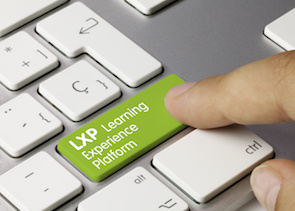While the idea of a Learning Management System can be traced back to Sydney Pressey’s 1924 “teaching machine”, most of us understand an LMS to be a way to deploy “distance learning” for students.
What most LMS’s have tried to do--as best they can given the limitations of an online platform--is to recreate the classroom environment. Letting teachers assign content and assessments to students and allowing students to progress through a course of study, or syllabus.
As virtual recreations of the physical classroom or lecture hall, Learning Management Systems have been great! The mighty LMS has given millions of people around the world access to educational content anywhere and anytime. An LMS can save organizations money on in-person course logistics, and can even help them stay on top of compliance issues.
And yet an LMS leaves much to be desired for professional and workplace learning.
An LMS, like a classroom, is often used as a one-size-fits-all approach. This is great for imparting mandatory, company-wide safety or ethics policies; it is not nearly as effective in coaching new skills or tracking performance in the real-world. And for many working adults who are looking to improve their job performance, sitting through a pre-defined “course” ranges from the irrelevant to the outright boring.
Today's learners are looking for more than just a sit-and-get online course with perfunctory assignments that may or may not reflect their real-world context. They want a learning experience that allows them to demonstrate mastery and advance at their own pace, following their own lead and asking for guidance when they truly need it!
Enter the Learning Experience Platform (LXP)...

A Learning Experience Platform is designed around the learner, and it provides a rich, competency-driven ecosystem, creating a “learning experience” which closely mirrors the way research tells us adults and working professionals actually learn.
So, how does an LXP differ from an LMS?
- An LXP enables learners to explore and create their own learning paths based on their own specific needs. A “learning path” is not a cookie-cutter course, but rather a competency-aligned and scaffolded set of learning resources that lead each learner toward a demonstration of mastery.
- Because Learning Paths are more fluid and flexible than courses, LXPs can take advantage of any form of content - including videos, blogs, articles, courses, social posts, surveys and interactive assessments, autodidactic simulations, and more.
- Where LMSs are centered around instructors and their courses, the LXP is centered around the learner and his/her competencies.
- An LXP can provide micro-learning and badging experiences that allow each learner to access and complete their desired content more efficiently and with more frequent feedback and recognition (which research has shown creates increased motivation and learner engagement).
While an LMS relies upon an instructor to impart lessons and content, an LXP takes advantage of the coach-protege model, where the coach supports the learner as he or she advances through self-directed learning.
Workplace learning is almost entirely structured through mentor-protege models. So why would our online solutions send all adults back to elementary school, sitting at desks waiting for the teacher to tell them what to learn next? Evolving from an LMS to a Learning Experience Platform will provide more effective learning results for all.
For information on using Ready LXP for your own professional development needs, visit www.ReadyLXP.com or send an email to info@readylxp.com to schedule a personal demo.
Comments
Love the thought of self…
Love the thought of self-directed learning with the support of a coach!
Leave a Comment
Your email address will not be published. Required fields are marked *